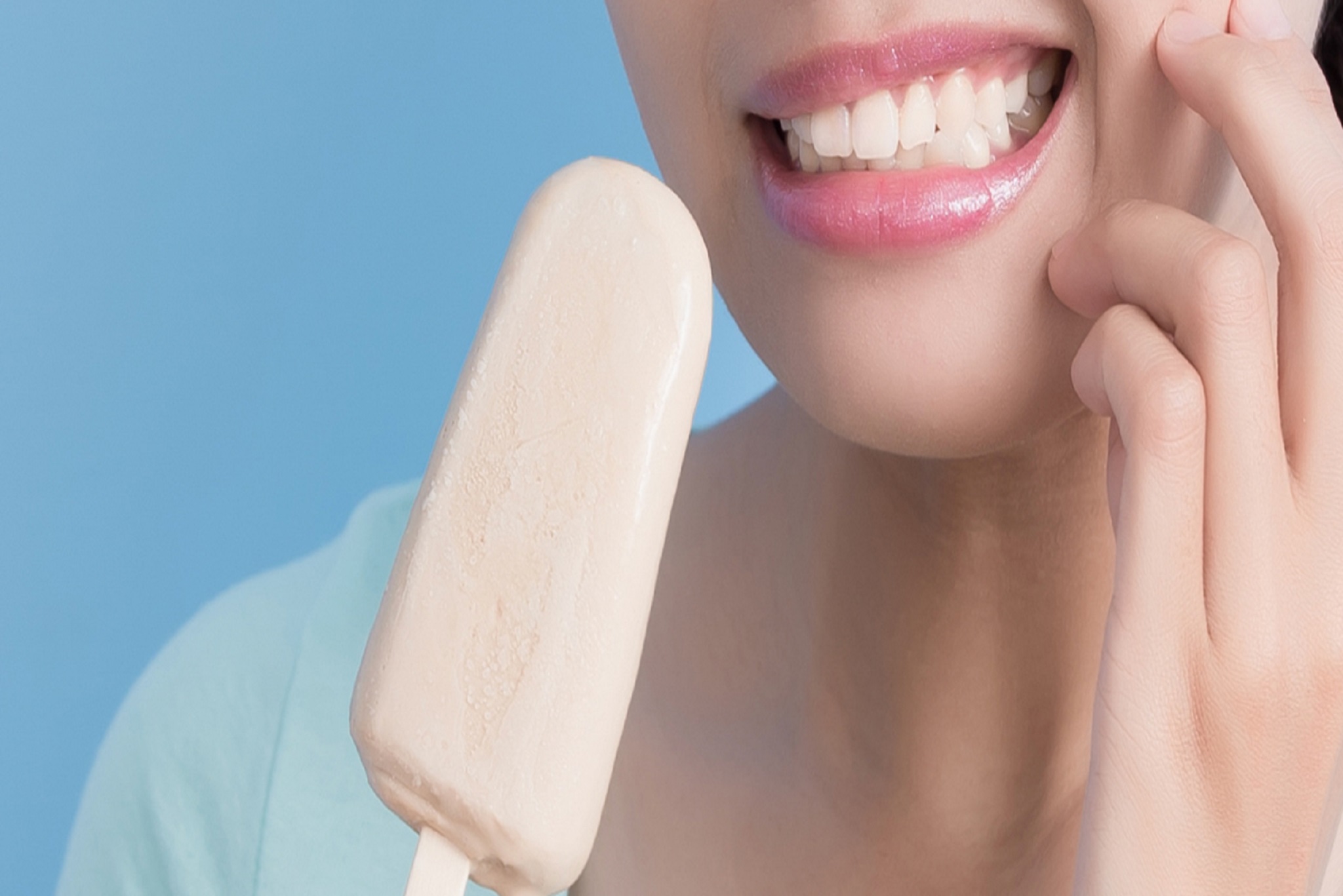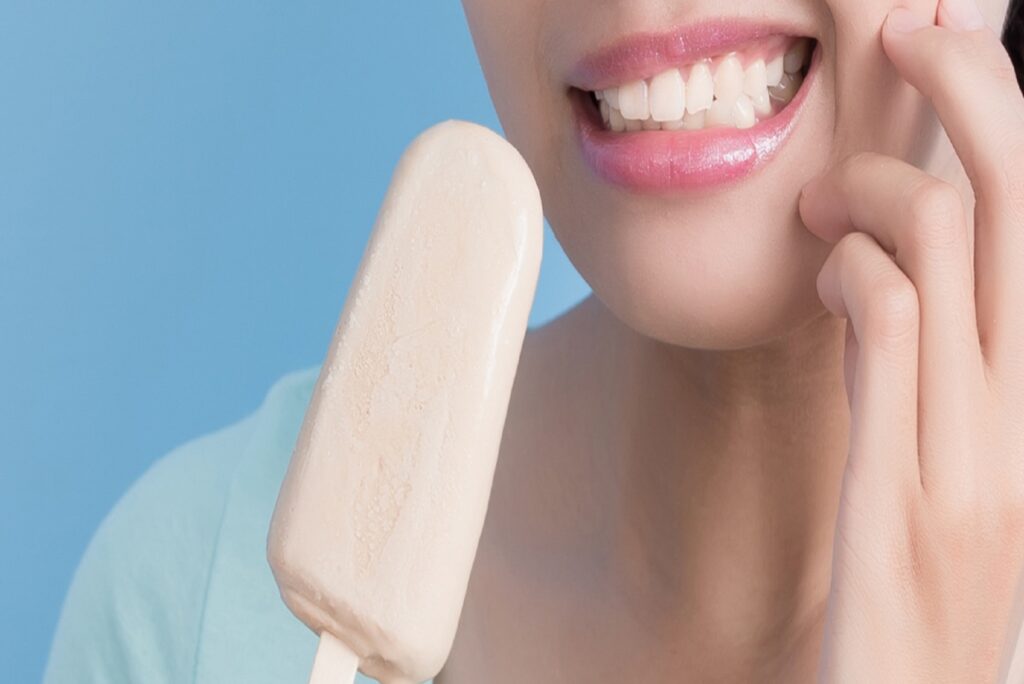Teeth Sensitive to Cold Dentist in Bilaspur: Causes and Safe Solutions
Karmanya DewanganSeptember 22, 2023
Teeth Sensitive to Cold Dentist in Bilaspur: Do you wince in pain when you enjoy a scoop of ice cream or take a sip of your favourite cold beverage? If so, you’re not alone.
Many people suffer from teeth sensitivity to cold temperatures, a common dental issue that can be both uncomfortable and disruptive to daily life.
In this blog, we will explore the causes of sensitive teeth to cold and discuss safe solutions with the help of the best dentist in Bilaspur.
Causes of Teeth Sensitivity to Cold
1. Tooth Decay:
One of the leading causes of teeth sensitivity to cold is tooth decay.
When decay occurs, it can expose the inner layers of your teeth, known as dentin, which contains tiny tubules that lead to the nerve centre of your tooth.
This exposure to cold temperatures can trigger discomfort and pain.
2. Gum Recession:
If your gums start to recede due to gum disease or aggressive brushing, it can leave your tooth roots exposed.
These root surfaces are not as well-protected as the enamel, making them more susceptible to temperature changes.
3. Enamel Erosion:
Enamel is the outermost layer of your teeth, and it acts as a protective barrier.
Over time, enamel can wear down due to factors like acidic foods, carbonated beverages, or aggressive brushing. As enamel erodes, your teeth become more sensitive to cold.
4. Cracked or Chipped Teeth:
Any cracks or chips in your teeth can create pathways for cold sensations to reach the sensitive inner layers.
Trauma or biting into hard objects can lead to tooth fractures, resulting in sensitivity.
5. Bruxism (Teeth Grinding):
Grinding your teeth, often unconsciously at night, can wear down your enamel and potentially expose dentin, leading to increased sensitivity.
6. Dental Procedures:
Some dental treatments, such as teeth whitening or dental cleanings, can temporarily increase tooth sensitivity to cold.
This is usually temporary and subsides on its own.
Dealing with Teeth Sensitivity to Cold Safely
1. Consult a Dentist:
If you’re experiencing teeth sensitivity to cold, it’s crucial to consult with a qualified dentist.
The best dentist in Bilaspur can accurately diagnose the cause of your sensitivity and recommend an appropriate treatment plan.
2. Desensitizing Toothpaste:
Your dentist may recommend a desensitizing toothpaste containing ingredients like fluoride or potassium nitrate.
These can help reduce sensitivity by strengthening enamel and blocking pain signals.
3. Avoid Acidic Foods and Drinks:
Limit your consumption of acidic foods and beverages like citrus fruits and carbonated sodas.
Acid can further erode enamel and exacerbate sensitivity.
4. Practice Good Oral Hygiene:
Maintain a strict oral hygiene routine, including gentle brushing and flossing.
Avoid aggressive brushing, as it can contribute to enamel wear and gum recession.
5. Use a Soft-Bristle Toothbrush:
Opt for a soft-bristle toothbrush to minimize abrasion on your teeth and gums while brushing.
6. Mouthguards for Bruxism:
If teeth grinding is the cause of your sensitivity, your dentist may recommend a custom-made mouthguard to protect your teeth while you sleep.
7. Professional Dental Treatments:
In some cases, your dentist may recommend treatments like dental bonding, fluoride varnish, or dental crowns to address more severe cases of sensitivity.
FAQ: Teeth Sensitive to Cold Dentist in Bilaspur
What causes teeth sensitivity to cold?
Teeth sensitivity to cold can be caused by various factors, including tooth decay, gum recession, enamel erosion, cracked or chipped teeth, bruxism (teeth grinding), and certain dental procedures.
How does tooth decay contribute to cold sensitivity?
Tooth decay exposes the inner layers of teeth, called dentin, which contains tiny tubules leading to the nerve center.
Cold temperatures can then trigger discomfort and pain.
Can gum recession lead to teeth sensitivity to cold?
Yes, if gums recede due to gum disease or aggressive brushing, it can leave tooth roots exposed, making them more susceptible to temperature changes.
What role does enamel erosion play in cold sensitivity?
Enamel erosion, the outermost layer of teeth, acts as a protective barrier. As it wears down due to acidic foods, beverages, or aggressive brushing, teeth become more sensitive to cold.
Do cracked or chipped teeth cause sensitivity to cold?
Yes, any cracks or chips in teeth can create pathways for cold sensations to reach the sensitive inner layers, leading to increased sensitivity.
Is teeth grinding (bruxism) linked to sensitivity to cold temperatures?
Yes, grinding teeth, especially at night, can wear down enamel and potentially expose dentin, resulting in increased sensitivity to cold.
Can dental procedures increase sensitivity to cold temporarily?
Yes, some dental treatments like teeth whitening or dental cleanings may temporarily increase tooth sensitivity to cold, but this usually subsides on its own.
How can a dentist help with teeth sensitivity to cold in Bilaspur?
A qualified dentist in Bilaspur can accurately diagnose the cause of sensitivity and recommend an appropriate treatment plan, which may include desensitizing toothpaste, lifestyle changes, or professional dental treatments.
What is the significance of desensitizing toothpaste in treating cold sensitivity?
Desensitizing toothpaste with ingredients like fluoride or potassium nitrate can reduce sensitivity by strengthening enamel and blocking pain signals.
How can one avoid or reduce teeth sensitivity to cold at home?
Individuals can avoid or reduce teeth sensitivity by maintaining good oral hygiene, using a soft-bristle toothbrush, avoiding acidic foods, and seeking professional dental advice.
What role does good oral hygiene play in managing cold sensitivity?
Maintaining a strict oral hygiene routine, including gentle brushing and flossing, helps prevent enamel wear and gum recession, reducing the risk of teeth sensitivity.
When is professional dental treatment recommended for cold sensitivity in Bilaspur?
Professional dental treatments like dental bonding, fluoride varnish, or dental crowns may be recommended for more severe cases of sensitivity after a dentist’s evaluation.
Conclusion: Teeth Sensitive to Cold Dentist in Bilaspur
Teeth sensitivity to cold can be a painful and bothersome issue, but it’s not one you have to endure without help.
Our best dentist in Bilaspur is here to provide expert guidance and solutions tailored to your specific needs.
Remember, addressing the underlying cause of sensitivity is crucial for long-term relief.
Don’t let cold foods and beverages keep you from enjoying life – seek professional dental care and get back to enjoying your favourite treats without pain.
Categories: blog_post
